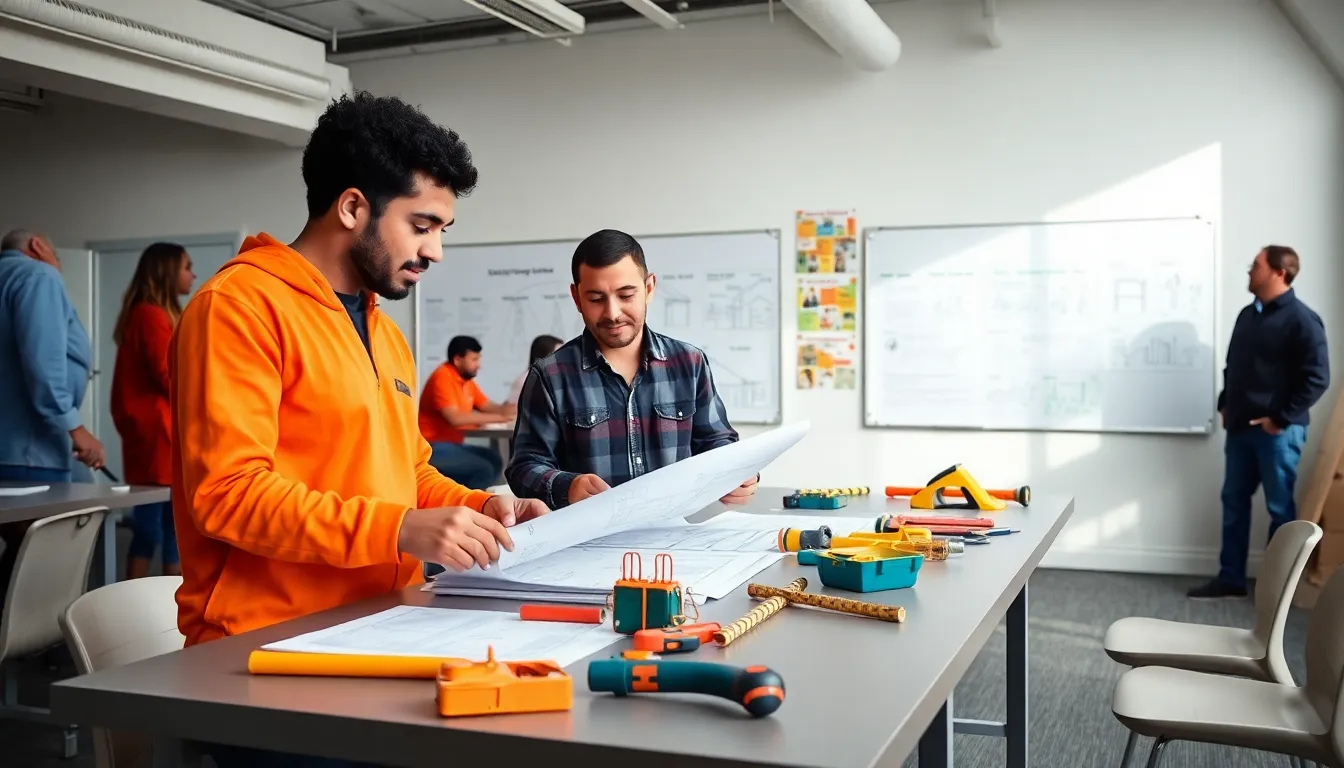Imagine a world where every blueprinted dream becomes a tangible reality. That’s what construction schooling aims to achieve. Not only does it train individuals to build physical structures, but it also equips them with critical thinking and problem-solving skills. Whether you’re setting out on a new career or looking to expand your skill set, understanding construction schooling could change your life in ways you never imagined. And let’s face it: who doesn’t want to be the person who transforms an empty lot into a sprawling complex? Let’s jump into the world of construction education and see how these programs lay the foundation for success.
Table of Contents
ToggleUnderstanding Construction Schooling Programs

Construction schooling programs encapsulate a wide range of educational options aimed at preparing individuals for rewarding careers in the construction industry. These programs not only provide hands-on training but also offer theoretical knowledge essential for understanding building codes, safety standards, and project management. The primary goal is to equip students with the skills they need to excel in various construction roles. Overall, prospective students can select programs that fit their career aspirations and learning preferences, whether that means a short-term certificate or a full-fledged degree.
Types of Construction Programs Available
The construction education landscape is as diverse as the structures it builds. Here are several types of construction programs available to aspiring builders:
- Certificate Programs: Often ranging from a few months to a year, these programs focus on specific skills like carpentry or plumbing. They are perfect for those looking to quickly enter the workforce.
- Associate Degrees: Typically taking about two years to complete, associate degrees offer a well-rounded curriculum in construction management and technology.
- Bachelor’s Degrees: Designed for those aiming for managerial or supervisory roles, this four-year degree combines construction education with business management courses.
- Trade Schools: Specialized schools provide immersive training focused solely on trades, such as welding or electrical work.
- Apprenticeship Programs: These combine on-the-job training with classroom education, allowing students to earn while they learn.
The Benefits of Pursuing Construction Education
Individuals considering construction schooling often wonder about the benefits. Here are a few standout perks:
- Job Security: The construction industry is continuously evolving and requires skilled labor, ensuring that educated professionals often have job security.
- High Earning Potential: With expertise comes financial reward. Skilled trades can lead to well-paying positions, making education a worthwhile investment.
- Diverse Career Options: Education offers access to various fields ranging from project management to specialized trades.
- Hands-On Learning: Many programs emphasize real-world experiences, which are perfect for kinesthetic learners.
- Networking Opportunities: Construction schools often foster connections with industry professionals, giving students job leads and mentorship opportunities.
Essential Skills Taught in Construction Schooling
Students in construction programs typically gain a comprehensive skill set. Here are some essential skills taught during their education:
Technical Proficiency
Understanding blueprints and construction plans is fundamental. Students learn to navigate various construction technologies, improving their technical prowess.
Safety Awareness
Safety regulations are crucial in construction environments, making safety training a core component of most programs.
Project Management
Basics of project management are often covered, enabling students to plan, execute, and finalize projects efficiently.
Communication Skills
In construction, clear communication is vital. Programs emphasize team collaboration and effective communication strategies.
Problem Solving
Students are often faced with real-life scenarios that require creative problem solving, ensuring they can think on their feet.
Career Opportunities Post-Construction Schooling
Graduates of construction schooling programs are presented with a myriad of career opportunities, including:
- Construction Manager: Overseeing projects from inception to completion, coordinating between various stakeholders.
- Estimator: Analyzing project costs, materials, and timelines to provide accurate job bids.
- Site Supervisor: Managing daily operations on construction sites, ensuring safety and efficiency.
- Plumber: Specializing in the installation and repair of plumbing systems, this trade is consistently in demand.
- Electrician: A licensed electrician is crucial for residential and commercial projects, providing much-needed expertise in electrical installations.
Choosing the Right Construction School
Selecting the right construction school can be overwhelming. Here are some tips to ease the decision-making process:
- Accreditation: Ensure the school is accredited, as this affects funding and job recognition.
- Curriculum: Review the program’s curriculum to ensure it aligns with your career goals.
- Facilities: A well-equipped school with modern tools and technology enhances hands-on learning.
- Flexible Learning Options: Consider institutions that offer online or evening classes for balancing work and study.
- Alumni Success: Research the success stories of past graduates to gauge the program’s effectiveness.


